
Front_Office_Operations
.pdf
Chapter 9 – Interpersonal and selling skills
The hotel ‘product’
2.1 Why customers choose a hotel
Different types of customer - may want quite different things from a hotel, depending on budget, circumstances and temperament. The needs of a conference organiser will be quite different from those of a luxury leisure traveller, or chance guest who has been travelling all day and merely wants a bed for the night, or a family looking for a budget holiday break. However, some of the attributes or benefits a hotel might promote to attract customers to the hotel, include the following.
●Accommodation style and quality (e.g.. room size, furnishings, en-suite bathrooms, in-room facilities)
●Hotel facilities and amenities (e.g.. car parking, swimming pool or spa, laundry/dry cleaning services, business/conference facilities, restaurant/bar)
●Location (e.g.. convenience for transport or events, proximity to local attractions, remoteness)
●Valoe for money (e.g.. budget options, added value at higher rates)
●Cleanliness and comfort (or luxury, depending on taste and budget) of rooms and public areas
●Security/safety or privacy (e.g.. for females travelling alone, families with children and VIP guests, and particularly in dangerous locations)
www.cthresources.com |
Page 491 |
|
www.cthawards.com |

Chapter 9 – Interpersonal and selling skills
The hotel ‘product’
2.1 Why customers choose a hotel continued…
●Relaxation, pleasure and entertainment (supported by the service, entertainment facilities and atmosphere of the hotel)
●Prestige and fashion (e.g.. for perceived high-class or highly-regarded hotels, recently publicised hotels, or hotels which attract celebrity clientele)
●Familiarity (e.g.. of a hotel chain, or through returning to the same hotel)
●Availability (e.g.. if it is late in the day and a chance guest is worried that (s)he may not be able to find a room)
●Customer service and hospitality (prompt response, problem-solving, assistance, warm welcome)
www.cthresources.com |
Page 492 |
|
www.cthawards.com |
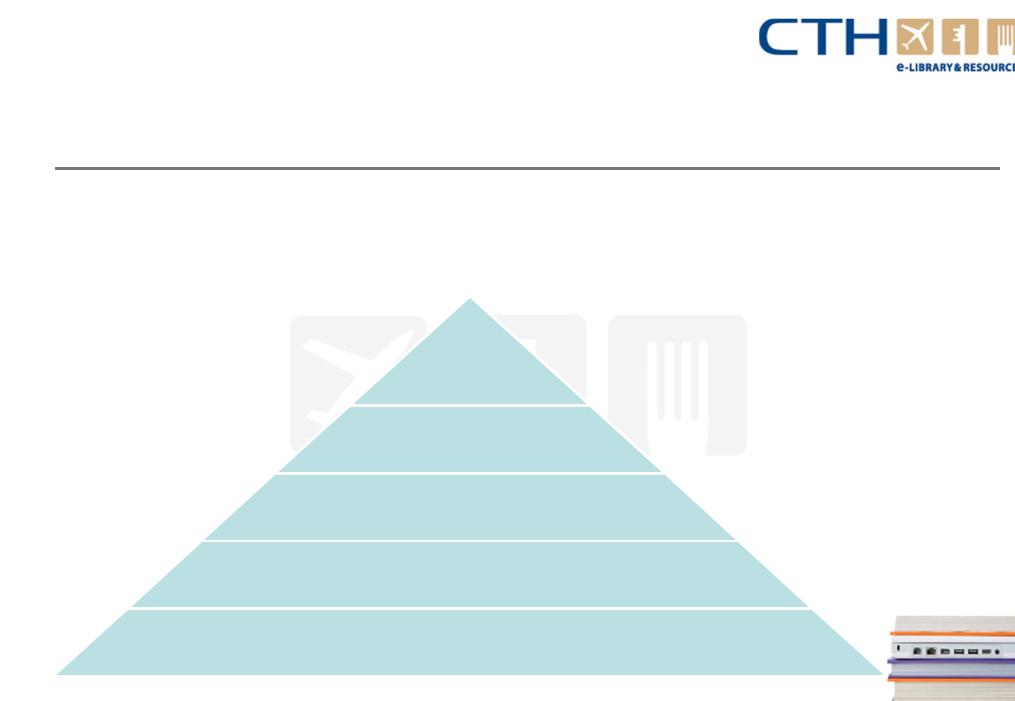
Chapter 9 – Interpersonal and selling skills
The hotel ‘product’
2.2 Anticipating and meeting guest needs
All people 'need' the same kinds of things. Psychologist Abraham Maslow identified five innate human needs, and suggested that they can be arranged in a 'hierarchy of needs':
Figure 9.1: The hierarchy of needs
|
SELF |
|
ACTUALISATION |
|
Fulfillment of |
|
personnel potential |
|
ESTEEM NEEDS |
|
For independence, recognition, status, respect |
|
from others |
|
LOVE/SOCAIL NEEDS |
|
For relationships, affection, belonging |
|
SAFETY NEEDS |
|
For security, order, predictability, freedom from threat |
|
PHYSIOLOGICAL NEEDS |
|
Food, shelter |
www.cthresources.com |
Page 493 |
|
www.cthawards.com |

Chapter 9 – Interpersonal and selling skills
The hotel ‘product’
2.2 Anticipating and meeting guest needs
Guests are unlikely to worry about social activities, status, or seeking out mind-broadening experiences like sightseeing, (e.g.. if they are hungry or feeling unsafe. But can a hotel really satisfy any of these basic needs?)
●Physiological needs is one of the basic functions. Guests who are tired and hungry, or anxious about finding food and accommodation at the end of the day, will be satisfied first of all by knowing that the hotel does, in fact, have a bed for the night, and an open food service.
●Providing safety or security, both physical and psychological, is another key requirement. Guests need to be safe (e.g.. by being offered secure accommodation) and to fee/safe (e.g.. by being offered welcome and assistance in an unfamiliar environment, and privacy when desired).
●Once a guest has been provided with these basic requirements, and begun to relax, (s)he may feel the need for companionship or belonging. This may be satisfied by the 'social' areas and services of the hotel (e.g.. a lounge, bar or meeting area, or entertainments), but also by personal service from Front Office staff, so that the guest feels welcomed and recognised.
www.cthresources.com |
Page 494 |
|
www.cthawards.com |
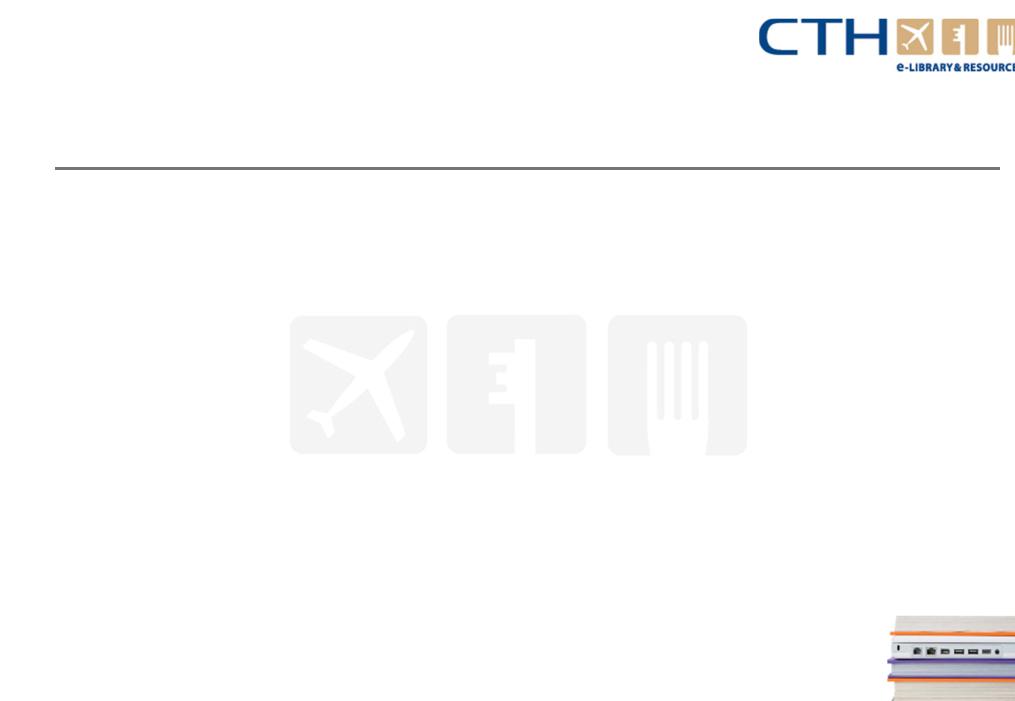
Chapter 9 – Interpersonal and selling skills
The hotel ‘product’
2.2 Anticipating and meeting guest needs
●Esteem needs can be met by the courtesy and respect shown to guests, the assistance and service offered to them (as if they were 'VIPs'), and perhaps also the perceived quality or 'exclusiveness' of the hotel, or a 'superior' or 'deluxe' room, or a 'Members Club' card.
●Self-actualisation is, arguably, a feature of travel, since it broadens the guests horizons. A hotel can offer guests opportunities to 'improve' themselves physically (e.g.. With exercise facilities), mentally (e.g.. with local information) and experientially (e.g.. with local cultural experiences and sightseeing tours), if they wish to do so.
www.cthresources.com |
Page 495 |
|
www.cthawards.com |
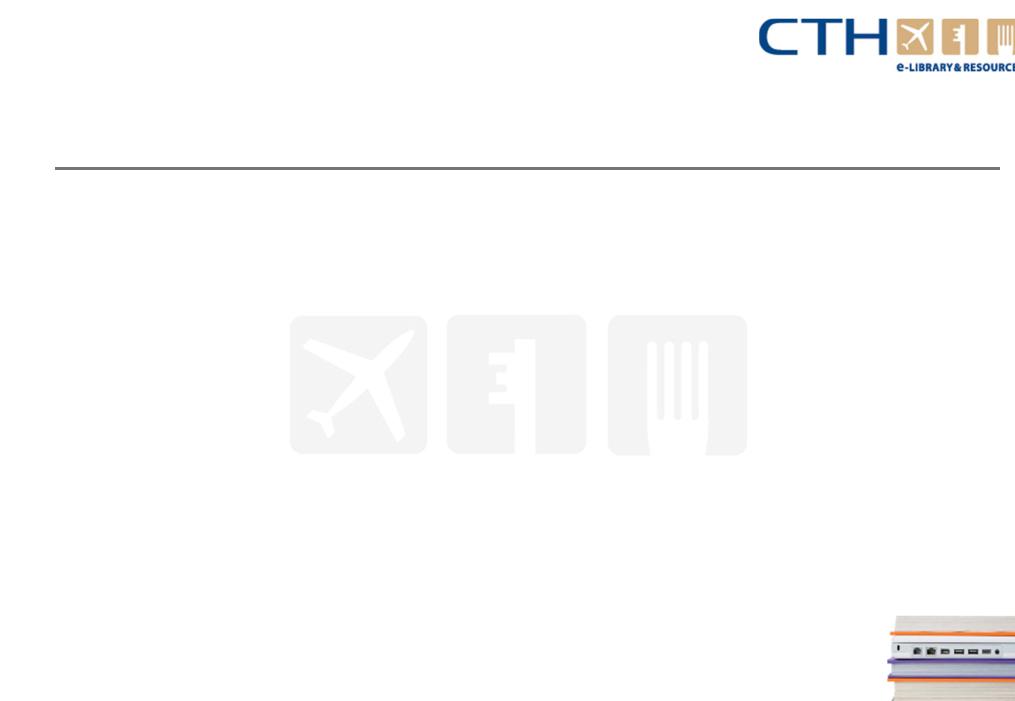
Chapter 9 – Interpersonal and selling skills
The hotel ‘product’
More specifically, different guests - and different 'types' of guest - may have specific needs and wants, which the hotel can anticipate and plan to satisfy. For example:
●VIP guests have needs and wants in areas such as: protection of privacy; heightened persona security; suites of rooms or inter-connecting rooms for security personnel and entourage; fast/private check-in and check-out; space for private entertaining; and 'special-status‘ treatment
●Business guests have needs and wants in areas such as: space and facilities for working in their rooms; swift/efficient check-in and check-out; access to communications and office facilities; the ability to charge expenses to their company; access to meeting rooms; and perhaps extra facilities for relaxation. Some hotels will, as we have seen, have an 'Executive Floor', for all these reasons.
●Single female travellers have special needs in areas such as: security and safety; privacy and nondisclosure of their status and room number; freedom from harassment by males (a regrettable fact of life); room-service dining; the opportunity to socialise with other women; facilities for personal grooming (e.g... in-room hair dryers); and perhaps a bit of extra 'pampering'
(e.g.. spa and luxury toiletries). Some hotels will have all-female floors, for all these reasons
www.cthresources.com |
Page 496 |
|
www.cthawards.com |
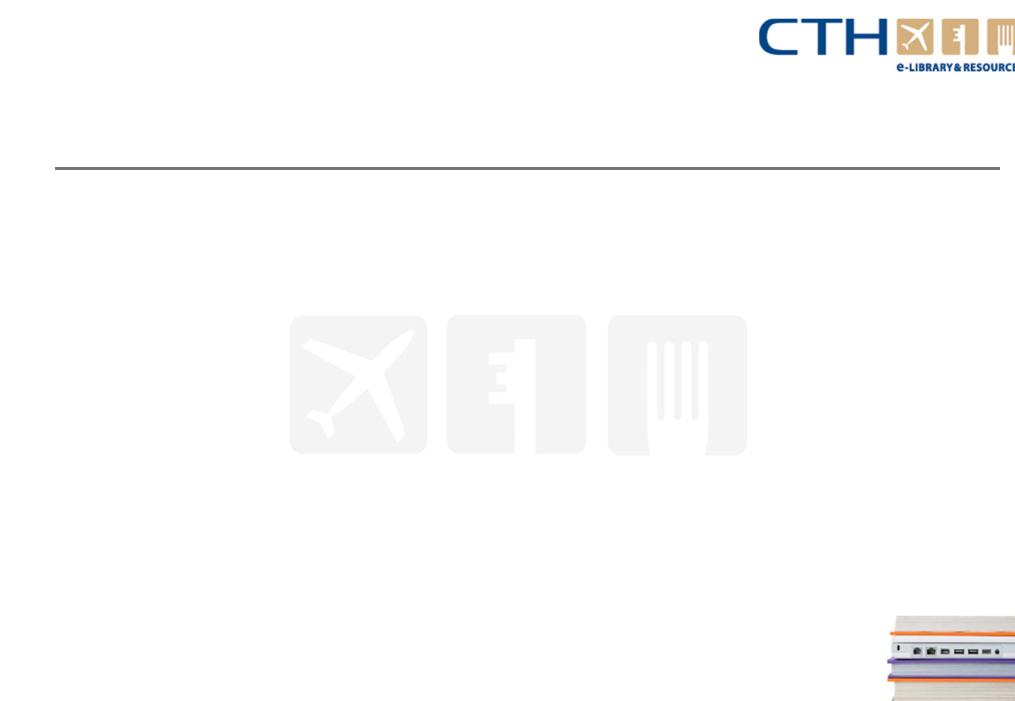
Chapter 9 – Interpersonal and selling skills
Personal social skills for Front Office roles
3.Personal and social skills for Front Office roles
3.1Personal skills and attributes
3.2Self-presentation (or impressions management)
3.3First-order social skills
3.4Second-order social skills
3.5Working in a team
www.cthresources.com |
Page 497 |
|
www.cthawards.com |
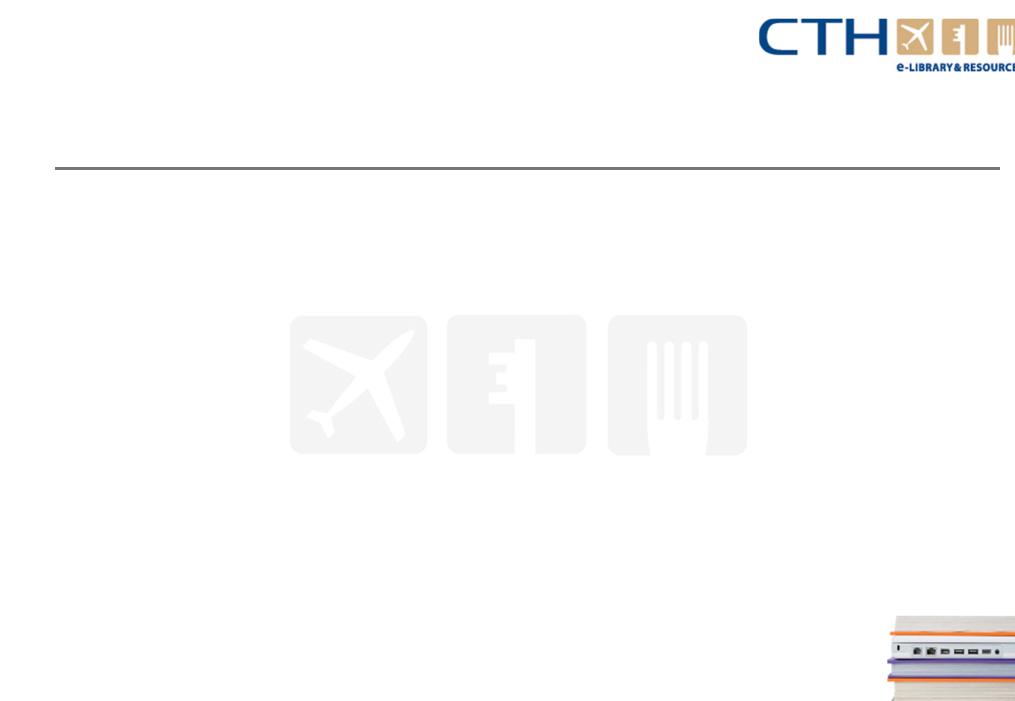
Chapter 9 – Interpersonal and selling skills
Personal social skills for Front Office roles
The essence of personal and interpersonal skills is that we have goals or purposes that we want see fulfilled from our actions, and from our interactions with other people. If the outcome isn't what we expected or hoped for, we may need to adjust our behaviour or improve our skills - so that we get a better outcome next time. (e.g.. Our purpose in dealing with guests in a hotel Front Office, may be to create a positive impression, or to persuade guests to use more of the facilities of the hotel, or to get an agitated guest to calm down. This is where social skills come in.
Social skills must be developed through practice; trial and error; and through watching and imitating people who are good at them (modelling). Are they likely to get the outcomes you want? What behaviours, appearance and communications styles are Iikeiy to get the outcomes you want?
www.cthresources.com |
Page 498 |
|
www.cthawards.com |

Chapter 9 – Interpersonal and selling skills
Personal social skills for Front Office roles
3.1 Personal skills and attributes
An effective Front Office person be 'like' - and should be able to do
●Time management. The hotel day will have its own 'rhythm', and there will be procedures and patterns for getting through the day's workload: (e.g.. when to open the mail, when to prepare guest bills). Even so, there will be quiet periods, and it is essential for staff to be methodical and organised in utilising the time to get the most work done - while still remaining flexible and available to meet the needs of guests. Time management IS a skill: learn to plan your day; use 'To Do' lists and checklists; batch similar tasks so you can do them together; have the information and equipment you need conveniently to hand; keep a tidy desk etc.
●Stress management. Front Office can be stressful, with hectic periods, demanding guests and awkward situations. Learn to recognise when stressed, and how to de-stress between hectic periods: it may be as simple as a short break, a cup of tea, some deep breathing, or talking to a sympathetic colleague (away from the hearing of guests ).
www.cthresources.com |
Page 499 |
|
www.cthawards.com |
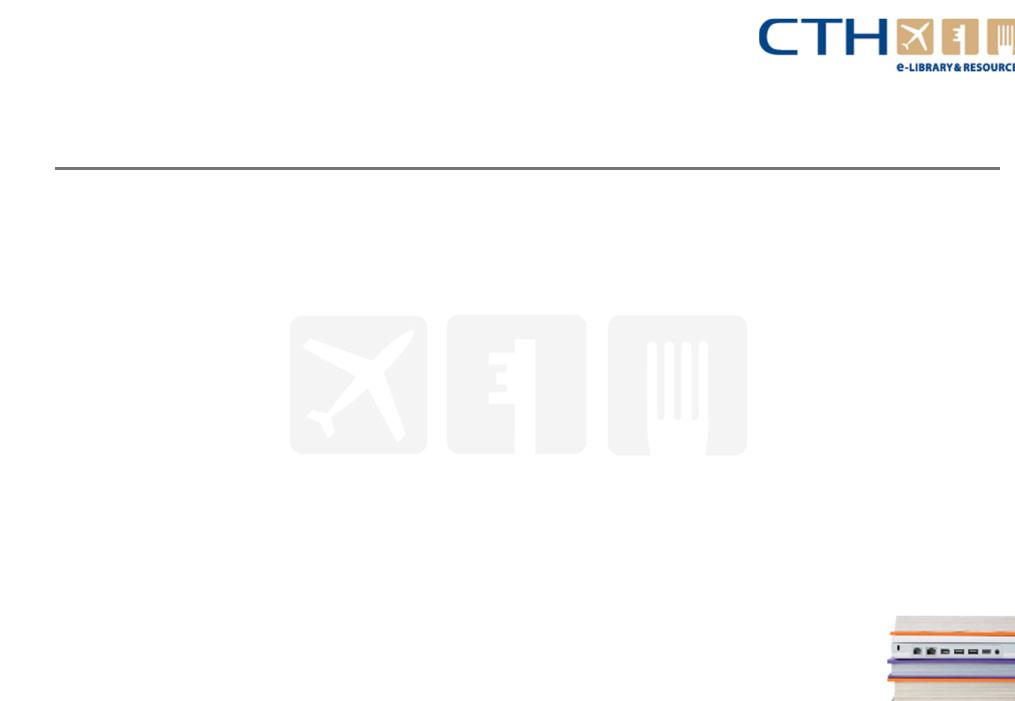
Chapter 9 – Interpersonal and selling skills
Personal social skills for Front Office roles
3.1 Personal skills and attributes continued…
Flexibility and resilience. Front Office poses ever-changing demands, and your best-laid plans will often be disrupted by unexpected events and guests' changing their minds (probably at short notice). Learn to recognise which rules/procedures are 'non-negotiable' (such as safety protocols) and which are flexible. Practise finding and offering options and alternatives. Learn to adjust with a positive 'can do' attitude and a smile.
Willingness and ability to learn. Learn to learn: from everything you do (but could do better or differently), from every mistake you make, from everything more skilled/expenenced people tell you - and from every error or successful behaviour you observe.
www.cthresources.com |
Page 500 |
|
www.cthawards.com |
